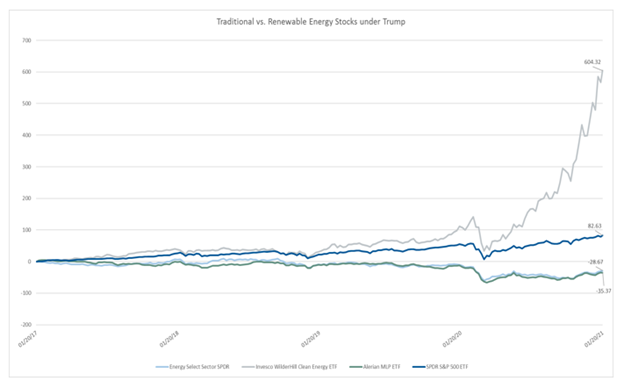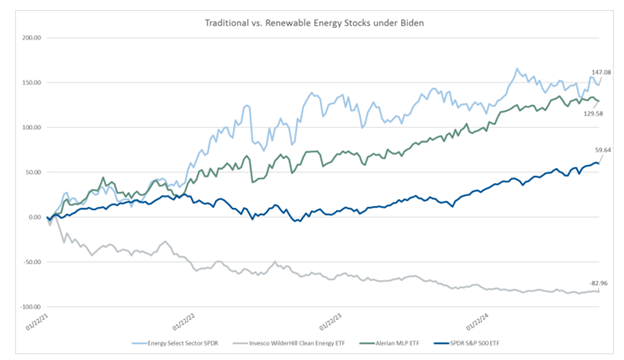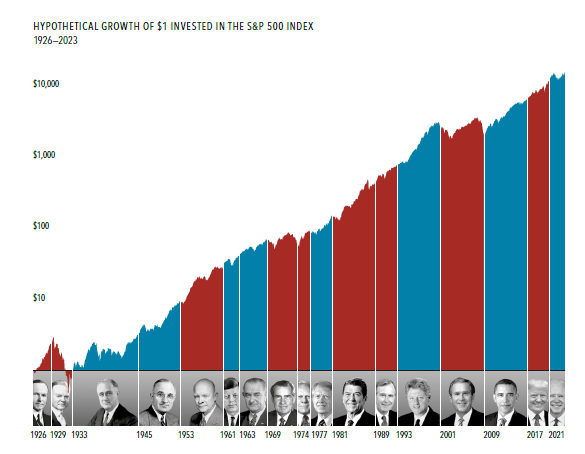
Thu, October 31, 2024
January 20, 2017. Chief Justice John G. Roberts, Jr. has just administered the presidential oath of office to Donald Trump. Trump is now officially inaugurated as the 45th President of the United States. Eager to capitalize on the new administration’s energy policy, an investor (a registered independent) moves a portion of his stock portfolio into traditional energy stocks. He believes the administration’s objectives of deregulation, energy independence, and increasing land and water access for drilling should be a boon for oil and gas companies. He also read that the Trump administration may approve new pipelines and also decides to include an allocation to oil and gas pipeline stocks. Conversely, the investor makes sure to avoid renewable energy stocks, eschewing companies involved in wind and solar energy, clean batteries, and electric vehicles. Surely, Trump’s pledge to roll back or oppose clean energy legislation and his commitment to withdraw from the Paris Climate Agreement can’t be good for the industry.

Source: Factset
January 20, 2021. The investor is shocked when he opens his year-end 2020 brokerage statement. Not only have his traditional energy and pipeline stocks delivered negative average annual returns during Trump’s presidency, but renewable stocks surged and turned out to be one of the best sectors in the market. Humbled but determined, the investor redoubles his efforts. After all, today is Joe Biden’s inauguration. Pro-environment policies were a centerpiece of Biden’s platform as he has committed to dedicating $2 trillion for green infrastructure and renewable energy during his first term. The investor swaps his oil and gas holdings into a portfolio of renewable energy stocks.
October 2024. The investor opens his third quarter brokerage statement….you probably know where there is going.

Source: Factset
These examples illustrate the challenge in making investment decisions based solely on politics. In each case, despite the perception of a favorable or unfavorable political regime, the end results were highly unpredictable and ultimately decided by macroeconomic variables. Energy stocks performed poorly during Trump’s term, beset by a glut of oil, uncertainty over trade wars, and the pandemic (when oil prices were briefly negative). Despite the promise of and eventual implementation of historic pro-environment legislation, renewable energy stocks were hit by high inflation and interest rates. Many projects which made sense when rates and inflation were low were pushed out or became unprofitable.
We recommend the same caution when digesting the results of the current election. The temptation to alter your investment plan based on which candidate prevails can be powerful. Extreme or controversial policies floated on the campaign trail are often watered down or implemented over several years, if they are even enacted at all. History has shown that stocks have done well regardless of political control. Ultimately, the economy and corporate profits continue to grow; corporations have figured out to grow margins and profits in a variety of political and regulatory regimes.

Source: Dimensional Fund Advisors
November 6, 2024. The investor ponders his next move. He decides to invest in a broadly diversified equity fund.
